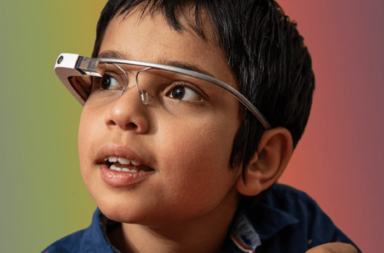Dental issues can occur in anybody but, due to sensory issues, proper oral health for autistic patients can be more difficult. Alas, while these problems are something both autistic people and our families should be well aware of, their intricacies are something entirely outside my wheelhouse.
Fortunately, this doesn’t mean you get a half-competent write-up of autistic dental problem though as, for today’s article, I’ve enlisted some help from the big guns: Dr. Greg Grillo – a practising family dentist with over 20 years experience – to discuss the 7 most common dental issues which can occur in patients with autism. Take it away Doc…

7 Common Dental Problems in People with Autism
There is a special learning process that comes with working with patients that are autistic. When an autistic patient visits my office, my staff and I are committed to getting to know them personally and working closely with them. Each child is different and we like to accommodate for their specific needs the best we can.
(While some may be born with the following issues, it’s important for those with autism to become familiar with daily dental care practices in order to care for and try to prevent these conditions.)
1. Gingival overgrowth
Patients with autism may suffer from Gingival overgrowth. This condition is sometimes known as gingival hyperplasia and is an abnormal overgrowth of the gingival tissues. Gums affected by this are often tender, soft, red, and bleed easily. Basic and effective oral hygiene practices such as tooth brushing and flossing can sometimes help with this condition.
There are a couple different types of toothbrushes that may be best for someone with autism who is accustomed to brushing their teeth every day. A brush with soft, natural bristles may help with any sensitivity one feels when brushing their teeth. Also, sometimes an electric toothbrush with soft vibrations can have a calming effect when brushing teeth. I’ve found that you should try out a few and decide which works best.
2. Early or late tooth decay
Tooth decay is a common dental issue that can happen at any age. It is also a common cause of tooth pain. In patients with autism, some have difficulties communicating their pain which may make it harder to discover that tooth decay is happening. Decay is often caused by acidic damage to the tooth structure produced by bacteria that live in the plaque. By finding a great special needs dentist and making regular visits, tooth decay should be able to be easily avoided and treated.
There are many resources available to find the right dentist. First, your regular doctor may have some recommendations on dentists that specialize in working with patients with autism. Ask anyone you know with children or family members that are autistic. They may have some great recommendations for dental care. Going online is also a great way to find the right dentist. The American Dental Association is a great resource and has lists of thousands of dentists across the United States. Be diligent in your search and ask a lot of questions to find the perfect dental care provider.
3. Severe, early periodontal gum disease
Periodontitis or periodontal gum disease damages the soft tissue and destroys the bone that supports your teeth. It is a common oral condition that can be preventable with proper care. You may notice symptoms such as swollen or puffy gums, sensitive gums that feel tender or bleed easily, and loose teeth.
For those with autism who suffer from periodontal gum disease, becoming accustomed to brushing twice a day, flossing, and visiting a dental care provider regularly can improve your chance of successful treatment. Building a dental care routine can be difficult, especially if you have any anxieties surrounding it. However, it’s important not to give up. Find ways that make it more enjoyable and stay persistent. Soon enough, your dental care routine should feel like second nature.
4. Constant teeth grinding, or “bruxism”
Constant teeth grinding, especially over a long period of time can put autism patients at risk for even greater dental issues such as tooth sensitivity, jaw pain, and most commonly worn-down teeth. It may be difficult to break this habit. Some may be grinding their teeth due to anxiety they’re feeling. Being patient and trying different methods to break the habit is the best way to avoid any further damage. You may benefit from finding a distraction such as an oral fidget or other sensory toys to help lessen and teeth grinding habits.
5. Tooth anomalies
A person with autism may be born with or develop a tooth anomaly over time. This can be any abnormalities to the form, function, or position of the teeth, bones, and tissues of the jaw and mouth. Dental anomalies can range from severely discoloured teeth or cleft lips. Most treatment works to diminish the defect and manage pain. Minor surgery is available for the most severe conditions. However, this is usually only in rare cases.
6. Pits, discolouration, lines, or other developmental defects in teeth
Like tooth anomalies, pits, discolouration, lines, and other developmental defects are common amongst autism patients. A pit is a small depression on the surface of the tooth mostly found on the teeth in the back of the mouth. Discolouration is any yellowing or browning of the tooth and lines are vertical lines that sometimes appear on the front of the teeth. These are tiny fractures in the enamel.
These conditions are most likely genetic and there may be options for treatment to be discussed by your dental care provider. A simple teeth whitening can help lessen many of these conditions, but composite resin or porcelain veneers can also be used. The process for getting these, however, is usually a lot longer than standard teeth whitening.
7. Accelerated, inconsistent, and/or delayed eruption of one or more teeth
Sometimes an autistic patient may not grow teeth fast enough or consistently. In some cases, their teeth may grow too fast. This usually isn’t a serious concern, but there is a risk that an abnormal eruption can lead to more dental problems later in life. The most important thing if an autism patient is experiencing abnormal eruption is to care for the teeth they have to the best of their ability.
Most dental issues can be easily treated or prevented. For patients with autism, it may be more difficult to resolve any oral related conditions. However, becoming comfortable with basic dental care and developing a good relationship with a special needs dentist can help to deal with any issues that you may face.

Carry on the Conversation
I would like to take this opportunity to say thank you to Dr Grillo for creating this article today. I’m sure you’ll agree that his insight and expertise is an invaluable asset to the autistic community.
If you would like to hear more from the good doctor, you can find him over on www.dentably.com.
As always, I can also be found on Twitter @AutismRevised or on the Autistic & Unapologetic Facebook page.
Thank you for reading and I will see you next Saturday for more thoughts from across the spectrum.


